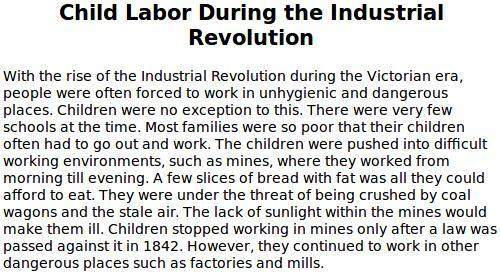
English, 17.05.2021 19:20 griffinbrowning17
Memories of a Memory
Have you ever witnessed something amazing, shocking or surprising and found when describing the event that your story seems to change the more you tell it? Have you ever experienced a time when you couldn't really describe something you saw in a way that others could understand? If so, you may understand why some experts think eyewitness testimony is unreliable as evidence in scientific inquiries and trials. New insights into human memory suggest human memories are really a mixture of many non-factual things.
First, memory is vague. Imagine your room at home or a classroom you see every day. Most likely, you could describe the room very generally. You could name the color of the walls, the floors, the decorations. But the image you describe will never be as specific or detailed as if you were looking at the actual room. Memory tends to save a blurry image of what we have seen rather than specific details. So when a witness tries to identify someone, her brain may recall that the person was tall, but not be able to say how tall when faced with several tall people. There are lots of different kinds of "tall."
Second, memory uses general knowledge to fill in gaps. Our brains reconstruct events and scenes when we remember something. To do this, our brains use other memories and other stories when there are gaps. For example, one day at a library you go to quite frequently, you witness an argument between a library patron and one of the librarians. Later, when telling a friend about the event, your brain may remember a familiar librarian behind the desk rather than the actual participant simply because it is recreating a familiar scene. In effect, your brain is combining memories to help you tell the story.
Third, your memory changes over time. It also changes the more you retell the story. Documented cases have shown eyewitnesses adding detail to testimony that could not have been known at the time of the event. Research has also shown that the more a witness's account is told, the less accurate it is. You may have noticed this yourself. The next time you are retelling a story, notice what you add, or what your brain wants to add, to the account. You may also notice that you drop certain details from previous tellings of the story.
With individual memories all jumbled up with each other, it is hard to believe we ever know anything to be true. Did you really break your mother's favorite vase when you were three? Was that really your father throwing rocks into the river with you when you were seven? The human brain may be quite remarkable indeed. When it comes to memory, however, we may want to start carrying video cameras if we want to record the true picture.
Which line from the text best explains the main problem with recalling details of a scene or room? (5 points)
a
You could name the color of the walls, the floors, the decorations
b
Memory tends to save a blurry image of what we have seen rather than specific details
c
Her brain may recall that the person was tall, but not be able to say how tall when faced with several tall people
d
In effect, your brain is combining memories to help you tell the story

Answers: 2


Another question on English

English, 21.06.2019 16:30
Twenty years gone, and i am back again on my own island. as for my change of skin, that is a charm athena, hope of soldiers, uses as she will; she has the knack to make me seem a beggar man sometimes and sometimes young, with finer clothes about me. it is no hard thing for the gods of heaven to glorify a man or bring him low. —the odyssey, homer based on what odysseus says in the passage, what has he learned? humans can become like gods. humans are under the gods’ control. humans can change from beggars to soldiers.
Answers: 1

English, 21.06.2019 23:00
As you have learned, epic heroes experience trials along their journeys. using your knowledge from beowulf, create a trial you believe an epic hero like beowulf might face. you will need to write a description of the trial using the aspects of a narrative. the trial can be anything you imagine, meaning you can test the hero in any way you see fit. be creative and have fun with this! let your creativity flow. focus on key attributes of beowulf and use his attributes to create a trial that would truly test him. since beowulf is very strong, a trial involving strength and endurance might be to easy. try thinking outside the box to create a trial that would truly test the hero of the geats. examples of beowulf’s attributes: couragous, loyal, strong, persistant, honorable, confident try to use one or multiples of these attribute when designing your trial. a good way to think of this activity is that you are a hunger games game designer. what could you make that would stump beowulf
Answers: 1

English, 22.06.2019 00:00
What are the best types of evidence to use within the body paragraphs of an argument essay? unsupported opinions logical fallacies visual aids facts and statistics
Answers: 2

You know the right answer?
Memories of a Memory
Have you ever witnessed something amazing, shocking or surprising and found wh...
Questions

Mathematics, 01.12.2020 01:50




English, 01.12.2020 01:50

Mathematics, 01.12.2020 01:50



Mathematics, 01.12.2020 01:50

Mathematics, 01.12.2020 01:50

Mathematics, 01.12.2020 01:50

History, 01.12.2020 01:50






Computers and Technology, 01.12.2020 01:50

Social Studies, 01.12.2020 01:50




